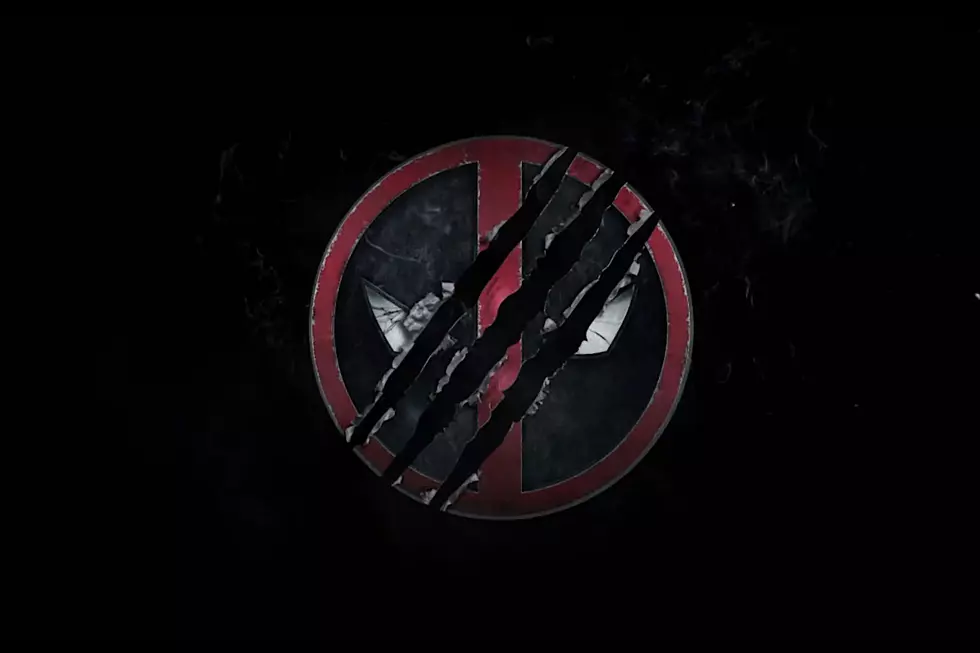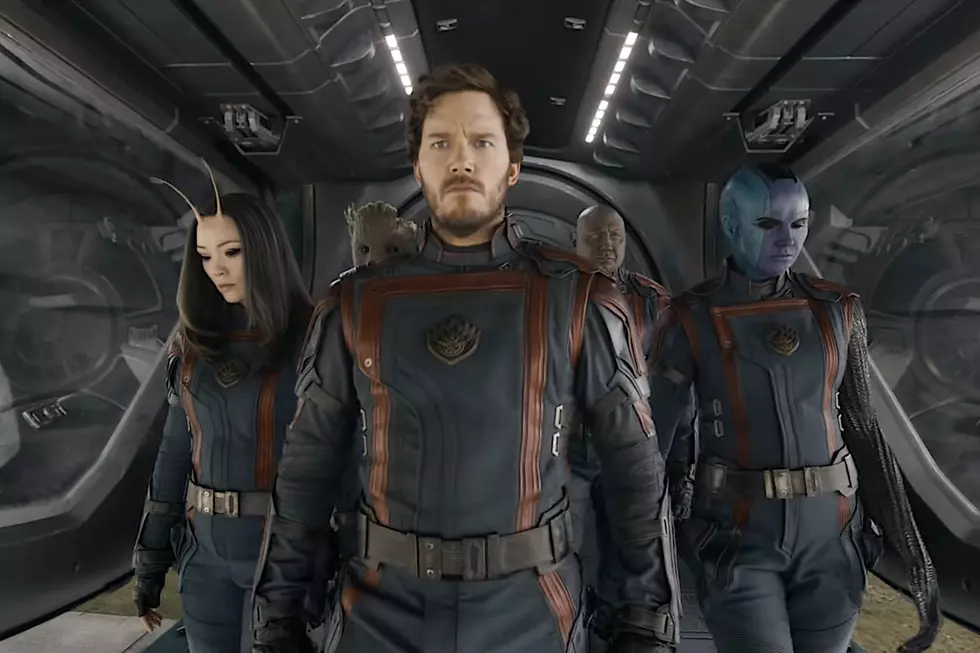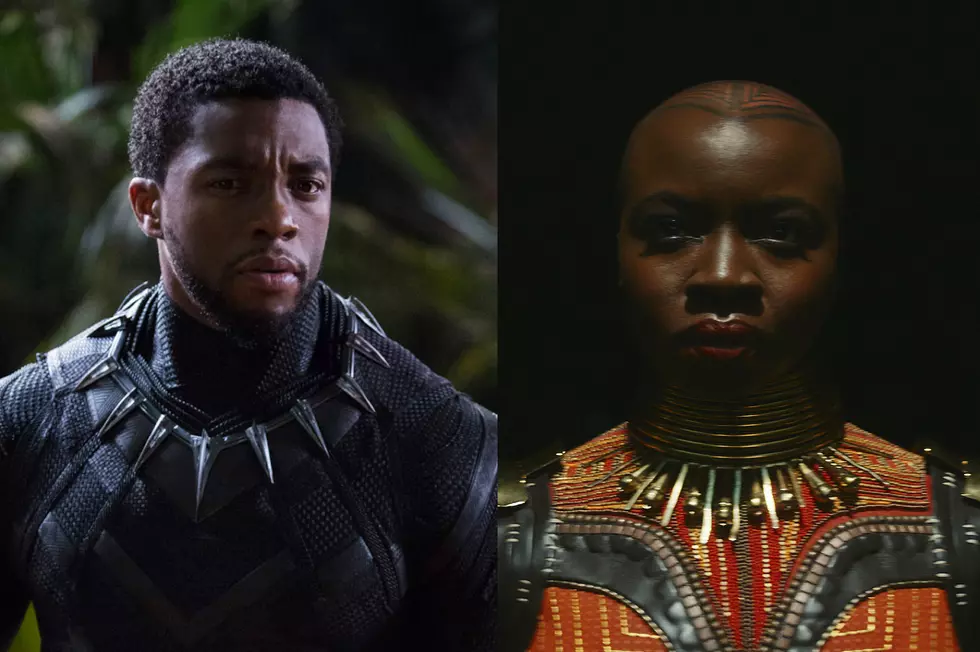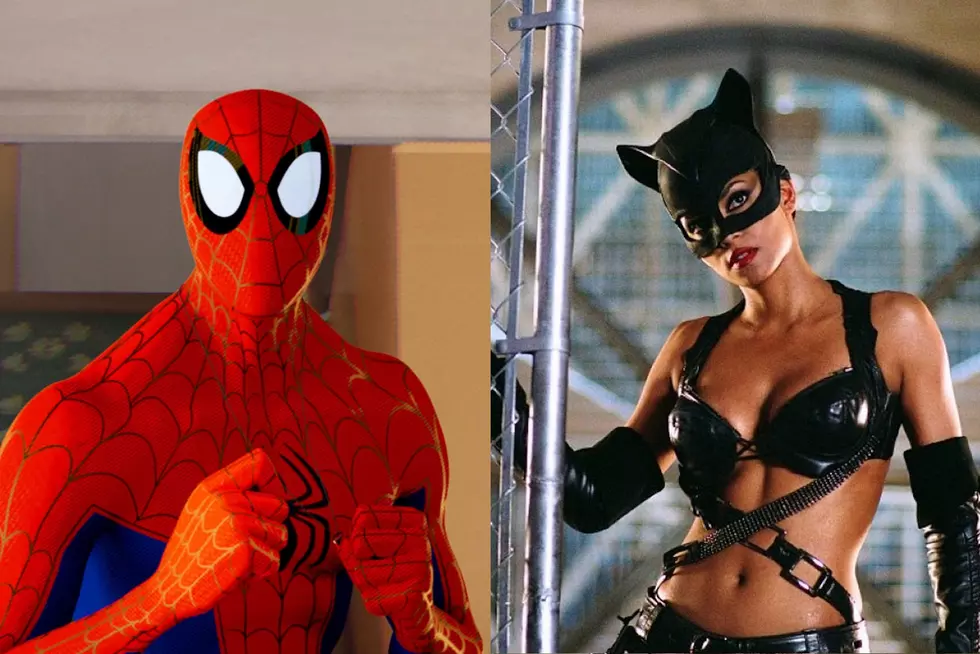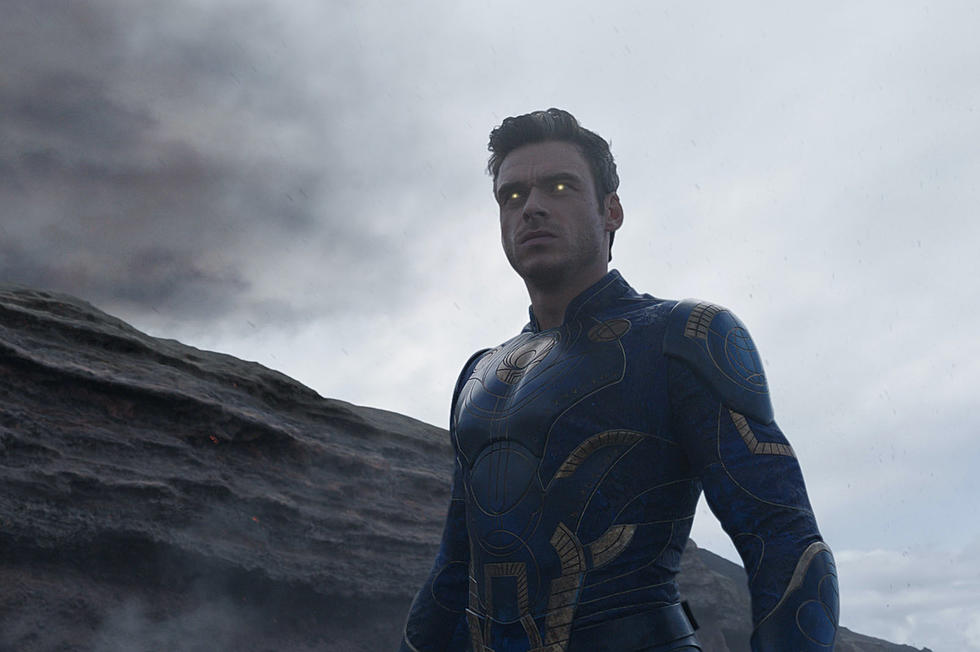
‘Eternals’ Review: One of Marvel’s Worst Movies and Biggest Disappointments
Marvel’s Eternals could have been deliberately constructed as an answer to the company’s critics who complain they make the same movie over and over again. If nothing else, Eternals does try some new things. Long stretches owe more to 2001: A Space Odyssey and Prometheus than The Avengers. The film introduces an elaborate new mythology of ancient gods, aliens, and monsters to the existing Marvel Cinematic Universe. Some of that mythology features interesting ideas — most taken directly from the original Eternals comics by Jack Kirby — about the connections between superhero fiction and religious iconography. But every scene is burdened by an uneven cast and a leaden script crammed with millennia of backstory that repeatedly kills the story’s momentum.
That’s a particular disappointment because Eternals is director Chloe Zhao’s followup to the outstanding Nomadland, which earned her Academy Awards for Best Picture and Best Director earlier this year. Zhao is about as good a director as has worked for Marvel, but Eternals utilizes almost none of her strengths, which, as evidenced by films like Nomadland and The Rider, involve crafting profound character studies about troubled outsiders seeking their place in the world. On paper, that could describe the Eternals, who are powerful immortals sent to Earth by alien gods known as Celestials in the year 5000 BC. Since then, they have guided humanity from the shadows, helping their technological advancement and protecting them from another race of aliens known as the Deviants.
Zhao’s earlier, superior films were intimate and nuanced. Eternals skims through the lives of ten characters across centuries.The things that made her indie movies special — their authenticity, their textures, their attention to detail — didn’t translate to massive blockbuster filmmaking where, even in a 150-minute movie, there’s not enough time to bring these people and their relationships to convincing life.
Even more frustratingly, Zhao chose to focus her attention on the two least interesting Eternals. That’s Sersi (Gemma Chan), who can transmute objects, and Ikaris (Richard Madden), a more traditional superhero type who can fly and shoot beams of energy from his eyes, which he does roughly 60,000 times in this film. For eons, Sersi and Ikaris were in love. In the present day of the MCU, they are broken up, and all of the Eternals have separated under mysterious circumstances. When a new wave of Deviants threatens Earth, Ikaris seeks out Sersi in London, where she’s working as a museum curator and professor and dating a mortal named Dane Whitman (Kit Harington).
The tortured romance between Sersi and Ikaris should be Eternals’ emotional core, but despite Ikaris’ remarkable energy powers, Madden generates zero sparks with Chan. That includes their big love scene, a first for Marvel Studios and truly one of the most lifeless depictions of sex in recent mainstream cinema. (Maybe because they’re ancient space gods and don’t know how to have sex? I’m trying to think of an excuse for it, and that’s the best I can come up with.) Chan has a stronger connection with Harington, but he’s got a small role, at least in this particular Eternals. (As always with Marvel, there is the promise that things will be better in the inevitable sequels.)
With the Deviants causing trouble for the first time in centuries, it’s up to Sersi and Ikaris to reassemble the rest of the Eternals. That’s when the team’s most compelling members begin to show up, including Kumail Nanjiani as Kingo, who used his charm and good looks to become a massive Bollywood star, and Brian Tyree Henry as Phastos, the first openly gay hero in a Marvel film. Eternals’ best scenes consider how these ageless extra-terrestrials found their home among humanity, and relate to its people. Each character gets just a couple of minutes to do that, though, before they’re dragged away from their lives to take part in the Eternals’ new adventure.
Jack Kirby created the Eternals after he returned to Marvel in the late 1970s following a brief run at DC Comics. By that point in his career, he was largely a one-man band, writing, illustrating, and editing his own work, and following his muse beyond the boundaries of traditional superhero comics. His Eternals stories are weird and wild and beautiful, and while the film certainly adapts his book’s essential premise about storytelling and myth, it bears almost none of its frenetic visual energy. That includes Zhao’s version of the Deviants, who in Marvel Comics are a distinct race of aliens with their own goals. In the Eternals movie, they’re largely a bunch of generic four-legged monsters with no goals beyond wanting to eat people. They just aren’t a big enough or entertaining enough threat to support an entire movie.
Eventually, Eternals does ramp up to the point where the fate of the world rests in the heroes’ hands. But even then, and even with a story that travels the globe from ancient Mesopotamia to modern Alaska, the Eternals’ battle with the Deviants seems to take place in a vacuum of gorgeous locations and a handful of backlot sets totally distinct from the real world. Maybe that’s because acknowledging the impact of the film’s apocalyptic stakes would also mean having to explain why the dozens of other Marvel heroes do nothing to prevent the end of the planet.
Marvel hasn’t been at this world-saving stuff as long as the Eternals but over the last 13 years they’ve gotten very good at what they do. Eternals finds the studio trying some new things, including a serious contemplation of where superheroes come from — both within the lore of the MCU and in our collective unconscious. That’s an idea worthy of serious exploration. In Eternals, it never quite comes to the foreground amidst a lot of listless exposition and the same sort of CGI-driven action sequences that conclude every Marvel blockbuster. When the smoke clears, Eternals is a movie about stories and, in a way, about the characters in one of those stories rebelling against the confines of their predetermined roles in the narrative. When they’re trapped in a movie as crummy as this one, it’s hard not to sympathize with their position.
Additional Thoughts:
-Eternals would have been much better suited to a Marvel television series on Disney+. On TV, they could have explored the team’s sprawling history at length (or even one character at a time) and really delved into the headier sci-fi concepts.
-It’s not Eternals’ fault it comes out just a few weeks after Denis Villeneuve’s Dune, but boy does the comparison between the two do it no favors. They’re both deliberate, artful science-fiction heavy on worldbuilding and loaded with far-out alien technology, but one feels real and tactile, with fascinating characters and political intrigue, while the other features about a dozen space gods in gaudy costumes zapping each other with gold CGI for 160 minutes.
-I suspect mainstream audiences are going to care a lot more about the film’s two post-credits scenes than anything that happens during the actual movie. If Eternals isn’t the worst film Marvel Studios has ever produced, that’s only because The Incredible Hulk is an even bigger mess.
RATING: 4/10
What One Man Learned Reading All 27,000 Marvel Comics

More From Mix 93.1


